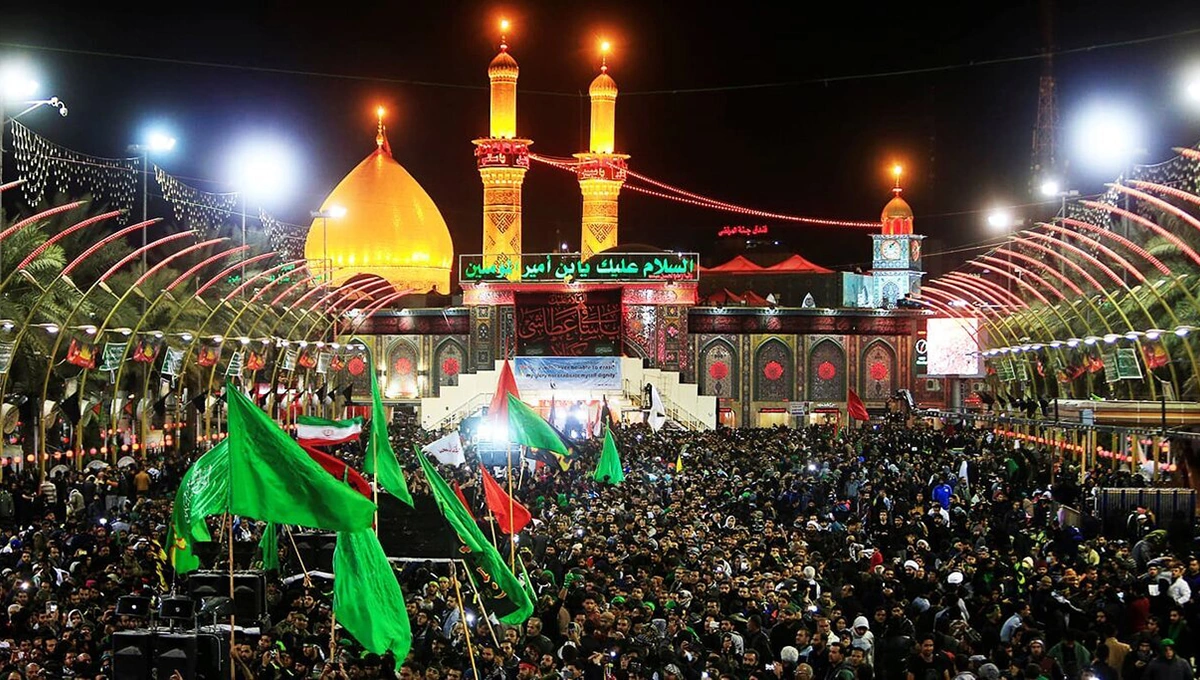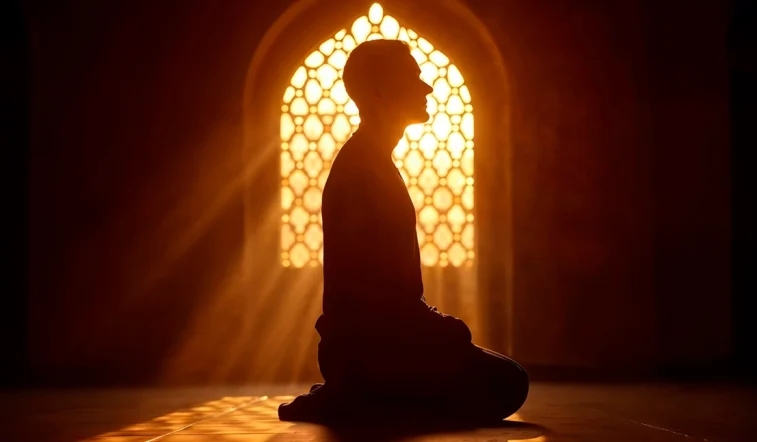When people talk about the future rule of Imam Mahdi (A.S.), they often think of an era that has yet to come—an age of absolute justice, peace, and compassion. But every year, there is a window into that future. A living example that shows humanity what is possible when love, faith, and unity overcome selfishness and division. That window is Arbaeen.

The Walk That Defies the World
Arbaeen marks forty days after the tragedy of Karbala, where Imam Hussain (A.S.), the grandson of Prophet Muhammad (PBUH), was martyred for refusing to bow to tyranny. Each year, more than 20 million people travel—many on foot—from all over the globe to his shrine in Karbala, Iraq. They walk hundreds of kilometers, crossing borders, languages, and cultures, united by one cause: to honor the man who gave everything for truth.
This journey is not sponsored by governments or controlled by organizations. There are no corporate sponsors, no ticket sales, and no political agendas. It is an ocean of people, moving with one heart.
Related Videos:
- Imam Hussain (A.S.) and the Battle of Karbala – Complete Story
- Inside the World’s LARGEST Human Gathering in IRAQ! (Arba’een)
- ARBA’EEN: Najaf to KARBALA
- Imam Hussain Shrine – Live Tour
The Miracle of Kindness
What makes Arbaeen miraculous is not just its sheer scale—larger than any other annual gathering on Earth—but the way it is organized. Or rather, the way it organizes itself.
Along the route to Karbala, ordinary people open their homes, build tents, and set up what are called mawakib—service stations run entirely by volunteers. These stations offer free food, water, tea, medical care, sleeping arrangements, even massages and shoe repairs to the pilgrims. No money is exchanged. No one asks for payment. Everything is done purely for the love of Imam Hussain (A.S.).
The generosity is breathtaking. A farmer may slaughter his only sheep to feed pilgrims. A child may hand out water bottles he helped carry from home. An elderly woman may stand in the dust for hours, pouring tea for strangers she may never see again. This is not charity in the worldly sense—it is honor. People feel blessed just to be able to serve.

People for People
At Arbaeen, the usual walls that divide society crumble completely. There is no rich or poor, no powerful or powerless, no elite or commoner. The CEO and the street cleaner sit side by side on the same carpet, sharing food and stories. A university professor breaks bread with a shepherd under the open sky, eating from the same pot with equal respect and gratitude. In this sacred journey, titles and wealth lose their meaning; what matters is the shared love for Imam Hussain (A.S.) and the commitment to walk together.
This gathering is a living testament that when people unite for a purpose greater than themselves, true equality can blossom. It is a society where selflessness replaces greed, where generosity flows freely, and where everyone is both a servant and honored guest. The service offered here is not a chore but a privilege—an act of devotion and joy.
Strangers become family, and neighbors become lifelong friends. Language barriers fade away in the warmth of hospitality; cultural differences blend into a harmonious mosaic of humanity. Here, the spirit of brotherhood and sisterhood transcends worldly distinctions, offering a glimpse of the just and compassionate society Imam Mahdi (A.S.) will bring.
Arbaeen is not just a pilgrimage; it is a powerful lesson in unity, humility, and love—showing the world that people, when united by faith and purpose, can build a society where kindness is the foundation, and everyone’s dignity is upheld.
A Glimpse of Imam Mahdi’s Global Rule
Islamic narrations tell us that when Imam Mahdi (A.S.) reappears, the world will be filled with justice after it has been filled with oppression. There will be no hunger, no injustice, no division. Humanity will live as one family, bound by truth, compassion, and service to one another.
Arbaeen is a glimpse of that future—a small but powerful preview of what the Imam’s global governance will look like. In these days, for a brief moment, people already live by those values: mercy, equality, humility, and unity.
It is not a government enforcing rules that makes it happen—it is the people’s hearts that create it. This is why Arbaeen is a miracle of Imam Hussain (A.S.)—because it shows us that such a world is not just a dream; it is possible.
Voices from Around the World
Arbaeen has captured the attention and admiration of people from all walks of life around the globe. Journalists, politicians, academics, and travelers have been moved by the scale, spirit, and profound humanity of this annual pilgrimage.
British journalist Yvonne Ridley famously described Arbaeen as “the most peaceful gathering on earth.” She marveled at how millions of people could walk together for days without conflict, united by faith and compassion. For her, Arbaeen was not just a religious event but a powerful example of what humanity can achieve when guided by love and purpose.
Academics and scholars often refer to Arbaeen as “humanity’s greatest annual display of volunteerism.” Every year, millions of volunteers serve the pilgrims selflessly—offering food, water, medical care, and shelter without expecting anything in return. This extraordinary generosity exemplifies the spirit of community and self-sacrifice that Arbaeen inspires.
Several observers have gone further, stating, “If the world followed the model of Arbaeen, there would be no wars.” Indeed, the pilgrimage is a living demonstration of peace, unity, and solidarity transcending nationalities, ethnicities, and sectarian divides. It is proof that a world built on shared values of kindness and respect is possible.
A prominent Iranian sociologist noted, “Arbaeen is more than a religious ritual; it is a social phenomenon that brings together the disenfranchised, the wealthy, the young, and the old as one family.” He emphasized that the event breaks down barriers, fostering an unprecedented level of cooperation and empathy among participants.
An American political analyst remarked, “What we witness at Arbaeen is a grassroots movement of peace and humanity, demonstrating that ordinary people can create extraordinary change.” This sentiment echoes the hope that the values embodied at Arbaeen could inspire global harmony.
Even some international news outlets have highlighted Arbaeen’s significance. A report by Al Jazeera called it “a festival of unity and resilience,” while BBC News described it as “a pilgrimage that challenges our notions of community and service.”
In all these voices, one clear message emerges: Arbaeen is not only a massive gathering but a profound manifestation of human kindness, resilience, and faith. It invites the world to witness what is possible when millions come together—not for power or profit, but for love, remembrance, and the pursuit of justice.
The Call of Arbaeen
If you have never seen it, you cannot imagine it. If you have walked it, you will never forget it. It is the largest peaceful gathering on the planet—organized entirely by ordinary people, for ordinary people, without worldly gain.
It is a message to the world:
If millions can unite for Imam Hussain (A.S.) today, the whole world can unite for Imam Mahdi (A.S.) tomorrow.
Arbaeen is not just a commemoration of the past. It is a rehearsal for the future—the future we are promised under the governance of the 12th Imam, where justice will reign and love will bind humanity together.







